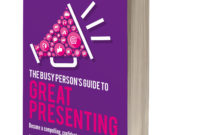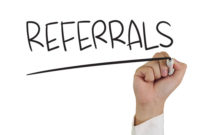
How to build your unique brand
There are awards and associations for everything. Literally everything. Actors have Oscars, musicians have Grammys and there are even awards for goats. I’m not making that up. I once performed at an exhibition called ‘GOAT 2008’ and one of the cute little animals won ‘Goat of the Year’. (I never dared enquire what the goat had to do to win that award!).
Why am I telling you this? Because for magicians (like me) one of the greatest honours is to be accepted as a member of The Magic Circle, the UK’s most obsessively secret club. An even greater honour is to be asked to lecture there. You can probably guess where I’m going with this – yes, they asked me to lecture there! I was so excited that I accepted immediately, without a clue what I was going to talk about.
In the end, I decided that I would run a session based around building a business through having a strong, differentiated brand. Thrilling stuff, right?
As it happens it was, and many of the performers there loved some of the ideas and so I thought I’d share them with you here.
Having a strong brand helps in almost every way in business. If you work for an organisation and have a strong personal brand, people find you. They want to connect with you. They listen to your opinions and advice more. Opportunities come your way more easily.
If you run a business, having a clear, compelling consistent brand for the business makes a huge difference. It’s amazing how many business owners lose sight of this. You spend so much time and energy running the business, that you forget what the business is really about.
I’ve run dozens of workshops with leadership teams where I’ve asked them to describe what the business does, and they’re usually amazed that they’ve all got different definitions – sometimes competing ones.
If you don’t have a clear brand, then you’re just a commodity – you’re the same as everyone else. Internally, that means you’ll miss opportunities and connections. If you’re a business owner, that means you’ll often end up competing on price and having to work with less than ideal clients.
Here’s an exercise which I’ve tried with many people (including myself!). It will help you to clarify your thinking about your brand and give you some creative ideas about how you might start transmitting your value to to other people. If you’re interested in the idea of value, see this post.
Below are 8 questions for you to answer to clarify your thinking around your brand. Ideally, try and get someone else to ask you these questions (at The Magic Circle, I asked people to pair up and ‘interview’ each other). There’s something about having to say your answers out loud that forces you to be more creative and ‘natural’ in your responses.
You’ll find you get some great ideas doing this, and you might even come up with some useful phrases and suggestions for your own promotions, meetings, presentations and sales.
I’ve written a brief description of why each question matters next to it, but don’t sweat the details – just give it a go and let me know how you get on.
This isn’t an exercise that you can ‘fail’ at. Try it and see what result you get, then try it again in a few months’ time. Each time, you’ll achieve greater clarity.
1. ‘Why do you do what you do? What’s your story?’
We love stories. We remember them, and believe them easily. People and business with a great story and passion for what they do usually have a strong brand. If you want to stand out – have a story.
2. What’s the strategy behind your brand? Do you even have one?
Internally, what do you want to achieve over the next couple of years? Is what people say about you, today, helping you to achieve that?
If you’re a business owner, what do clients say about you when they’re talking to others? Is your brand helping you achieve your goals?
3. What’s the strategy behind your fees?
This is more relevant to business owners and people in business development. It’s amazing how many people don’t have a fee strategy. Many people, especially in services businesses are just making fees up as they go along. This isn’t fair to you as it’s stressful and chaotic, and it isn’t fair to your clients – either you’re providing value, or you’re not. If you are, you should charge for the value, not ‘what you can get away with’. Remember that price is a good indicator of quality. Counter-intuitively, in many businesses it can often be better to have fewer clients paying more.
4. Precisely how do you benefit your booker/client/team/department/business …? Is your answer to this question memorable, clear and compelling?
People and business with a strong brand are usually very, very clear on how they deliver and add value. When they talk to you, you think ‘That sounds good’. Take some time today to get this right. Don’t wait until you’re in front of your new boss or potential client to think about how you deliver a benefit!
5. How do you affect the people you work with (not just your client) are you referrable?
Again, this question is particularly useful for those who run their own business, or are in sales. Taking time to understand the impression that you make. And being honest about what people say about you to others helps you to focus. You learn where to improve, and where you’re already strong. A personal, and business, brand is as much about how people feel about you as any facts. Be aware of this.
6. At the heart of what you do is a simple idea, what is it …?
See this post for more on this idea. If you fill in the dots in the sentence above, you’ll often find that you get right back to the core of what you’re about. You are usually more valuable than your job title, and your business is usually more valuable than the company name might suggest. For example, I was working with someone recently who was a tax advisor. He used to say ‘I’m a tax advisor, and I’m a specialist in high-wealth individuals who need guidance on regulatory and legislative requirements which affect them and their business.’
There’s little value in that, and you have to think hard to work out what the value is. I asked him to fill in the above sentence, and he replied: ‘At the heart of what I do is a simple idea – I keep people out of prison!’. This approach won’t suit everyone, but the principle applies to everyone – beyond your products, services, systems and processes, there’s something you do that matters. what is it?
One more example – I was working with a leadership team in the NHS recently. Someone described their job in terms of role and responsibilities. It was hard to understand what it was she did, and why it mattered. I gave her the sentence above and she said:
‘At the heart of what I do is a simple idea – I help vulnerable children feel safe’.
That matters.
7. What you do isn’t really about X, what’s it really about?
This is another form of number 6, and will help you to deepen your understanding of what you really do and why it matters. For ‘X’ simply use your job title, industry, service or product.
For example: ‘It’s not really about ‘consulting’, it’s about making client’s lives easier.’
8. Describe yourself in 3 words. BUT – they must be words your competitors wouldn’t use!
This is tough. Because of its toughness, it’s very useful. The language we use about ourselves produces results. It’s easy to use bland, generic, language to describe ourselves, but that tends to mean we get bland, generic responses. It’s easy to describe yourself as ‘individual, dynamic, and driven’ but that’s how everyone else describes themselves.
I hope you enjoy this exercise. It’s one that you can return to again and again, and every time you do you’ll learn something more about yourself, your business and the way that you communicate value to others.
Good luck, and let me know how you get on!
More insights and tips ...
The Busy Person's Guide To Great Presenting
There are awards and associations for everything. Literally everything. Actors have Oscars, musicians have Grammys and there are even awards […]
Read More ›How to stop being boring
There are awards and associations for everything. Literally everything. Actors have Oscars, musicians have Grammys and there are even awards […]
Read More ›Your presentations are costing you money
There are awards and associations for everything. Literally everything. Actors have Oscars, musicians have Grammys and there are even awards […]
Read More ›Set sales fees in threes
There are awards and associations for everything. Literally everything. Actors have Oscars, musicians have Grammys and there are even awards […]
Read More ›How to build your unique brand
There are awards and associations for everything. Literally everything. Actors have Oscars, musicians have Grammys and there are even awards […]
Read More ›Why I don't take sales referral fees and neither (probably) should you.
There are awards and associations for everything. Literally everything. Actors have Oscars, musicians have Grammys and there are even awards […]
Read More ›





